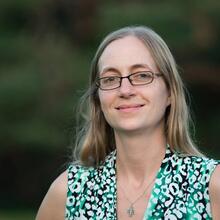A Reflection for the Memorial of St. John Neumann, bishop
Find today’s readings here.
Do not be amazed, then, brothers and sisters, if the world hates you. We know that we have passed from death to life because we love our brothers.
This Yuletide, I have several times found myself humming the old carol, I Heard the Bells on Christmas Day. The words were written in 1863 by Henry Wadsworth Longfellow, in a poem originally entitled Christmas Bells. Longfellow was struggling to reconcile the joy of Christmas with the terrible grief in his own heart following the tragic death of his wife and recent news that his eldest son, a soldier in the Union army, had been severely wounded on the battlefield. At such a time, the angel’s promise of “peace on earth, goodwill to men” sounded to him like a taunt:
And in despair I bowed my head; “There is no peace on earth,” I said; “For hate is strong, And mocks the song Of peace on earth, good-will to men!”
This retort certainly resonates in our own time, especially at Christmas, when the lights and cheery music might seem wildly at odds with the mood of the moment. In principle, I believe that Christmas decorations should be kept up at least through the Epiphany. But sometimes it’s a relief to see them taken away if the incongruity with broader events makes them feel fake and superficial. Does love really seem to be winning in our nation or the world at large? Where exactly do men of goodwill enjoy peace? We can’t use tinsel to bury the ugly truth.
In the end, the Christmas bells remind Longfellow that their message is not superficial. God’s love will ultimately heal all injuries, even death itself. Today’s reading develops this joyous news in a wonderful way, acknowledging that hatred does tend to compound itself but reminding us that love is ultimately stronger.
Hatred gives rise to resentment and envy. Cain killed his brother because it enraged him that Abel’s sacrifice was more pleasing to God. We see that dynamic mirrored in all forms of conflict, from warfare to electoral politics to family disputes. If we can’t be good ourselves, we sometimes settle for tearing down other people whose virtues make us feel small. The enmity then intensifies, and at times it really does feel as though the world is driven by hatred.
In these bleak moments, we must remember this remarkable truth: God is love. We ourselves are capableof love only because he loved us first. When Christ commanded us to “love one another,” he was demanding something that is simultaneously very good for us and very hard. We really are happiest when we build our lives around love, but this is not the way of the world. God literally had to die for us to show us how it’s done.
There is more good news. Hatred may compound itself, but love is also infectious. When we love others, we can awaken their capacity for love. This can be especially effective when it’s directed towards enemies. Reflect for a few minutes on whether there are particular people who draw out your least charitable impulses. Then, consider how you might love those people better.
The final words of the reading from the First Epistle of John are particularly comforting. “God is greater than our hearts and knows everything,” he reassures us. “Beloved, if our hearts do not condemn us, we have confidence in God.” At times, it can be extremely difficult to love the people in our lives. God understands. His graces are available to us, and even imperfect efforts will pay off richly in this world and the next.
In the depths of his grief and despair, the Christmas bells remind Longfellow: God is not dead, nor doth he sleep. We too can hear this sonorous message if we listen and believe. A holy day has dawned upon us. Come, you nations, and adore the Lord.








